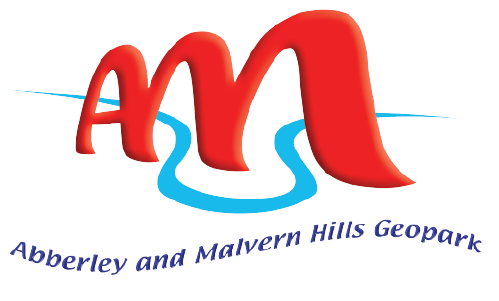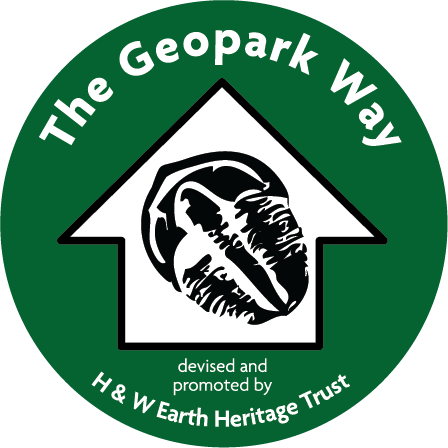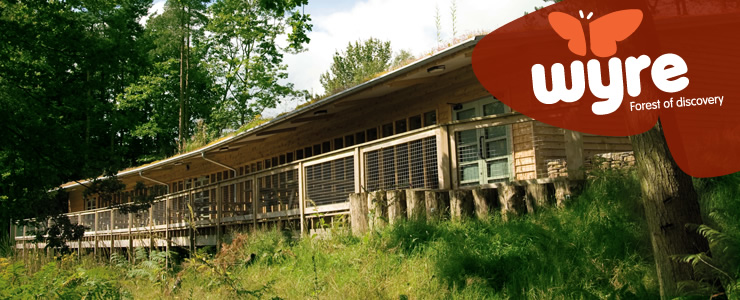
The Wyre Forest Discovery Centre
The Wyre Forest Discovery Centre, Forestry Commission, is the ideal place to get groups engaged with nature and the great outdoors. A wide range of a programmes for schools which enhance the National Curriculum, and a range of fun activities for children and families all in a safe and fun learning environment are offered at the Discovery Centre. Interactive displays about the forest, wildlife and wider environmental issues get the children engaged with nature before they venture into the forest.
Pre School
Forest Secrets for nursery and pre-school groups (a 1.5 hour session to include a push-chair friendly walk with activities, games and a story). Booking essential.
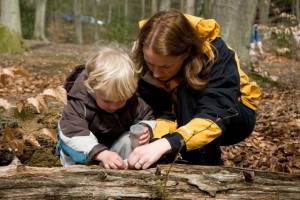
Bug hunting
Forest Friends is a pre-school group for under 5’s and their parents or carers. It meets every Thursday from 10am to 11am outside the Forest Cafe. No booking required. The cost is £3 per child, and £1 for participating siblings. (For sessions falling in the school holidays you are welcome to bring older siblings to join in).
Key Stages 1& 2
Find out about forests: This programme is an excellent introduction to a forest environment. Children use their senses to explore the woodland, including searching for seasonal signs and learning the names of of several common trees and plants. Children find out how trees grow, their importance in our everyday lives and their value as a habitat for wildlife. They will discover how a tree works and the many different uses of wood.
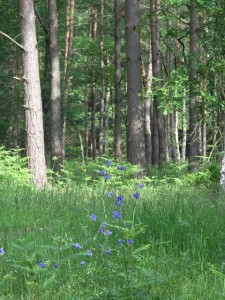
The Wyre Forest
Trees and Climate Change: A programme introducing the topics of sustainability and climate change. Through exploring the forest environment, playing games and making some basic calculations the children learn the importance of trees as carbon stores, and the role that forests play in the reduction of carbon dioxide emissions. Our Eco trail highlights the green features of the Discovery Centre and ends the day on a positive note, demonstrating sustainability in practice.
Animals in the forest: By following an animal trail through the forest, children detect signs of animal life and learn how animals are adapted to living in the forest through a variety of activities and games. They observe a range of animal skulls and teeth to discover what type of food they eat, and construct their own food chains. A minibeast hunt (study of a microhabitat) will be included. The children learn to take care of the animals and return them safely.
Plants in the forest: Children are introduced to the most important ‘inhbitants’ of the forest – the trees! They learn how to identify a number of tre species and group them into deciduous and evergreen. Through a number of games and activities the children find out what plants need to grow well, and the roles of different parts of a plant, including trees. Each class will receive a young broadleaf native tree to plant in their school grounds.
Temperate Forests: Children will compare our native temperate forest with a tropical rainforest which they will have studied at school. They will consider how and why the two biomes differ and examine the impact of seasons on both plant and animal life through a series of engaging activities. Children will learn how the FC manages its forests and understand some of the threats currently facing them.
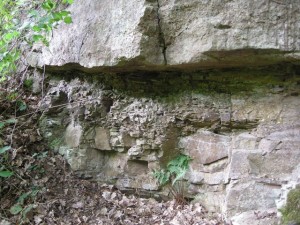
Rocks and soil of the Wyre Forest
Forest Art: Children explore the forest and the qualities of the natural materials that they find to create their own pieces of ephemeral art (individually and in groups) in the tradition of, and inspired by, artists including Andy Goldsworthy.
Maptime (Key Stage 2 only): Children explore the uses of maps and develop their map-reading skills through a progression of indoor and then forest-based map challenges. (It is anticipated that schools will stay on site for the whole day and in the afternoon will complete one of our orienteering courses on a self-led basis.
Rocks and Soils: Children learn, through fun activities, how rocks and soils are formed, their importance in everyday life, and their influence in shaping the forest we enjoy today. The properties of different rocks are investigated by making predictions and carrying out trials. The children are invited to try to make their own soil in the forest. (Extend your visit by following the geological timeline and leading a soil habitat activity on a self-led basis in the afternoon. All equipment provided.
Christmas Special (Key Stage 1 December 2015): A Magical winter experience for KS1 and pre-school children. Come and visit the Wyre Forest in midwinter to find out what the animals are doing at this time of year. The half day programme consists of a visit to the specially decorated Discovery Centre, a winter walk and animal trail, a forest story around a camp fire, and a craft activity. Each child will receive a rooted baby tir tree to take home.
Forest Discovery Pack: An exciting range of at least 9 different cross-curricular activities to choose from. Easy to follow instructions and all equipment provided. The contents of the pack are based on a class of 30 pupils. An activity summary to help you choose in advance is also provided. Cost for half a day hire: £20 per pack. This Pack is also available for full day hire for a complete self-led visit at a cost of £30.
Key Stages 3 & 4
Forest issues: This programme is particularly appropriate for studies in Geography and Citizenship at KS3. Students will be introduced to the changing human geography of the forest and how this has shaped and affected its management over time. The demands of conservation, tourism, forestry and sustainability will be discussed. Using practical exercises students will think critically and constructively about the conflicting interests in the forest, and, working in teams, devise solutions to resolve them.
Sustainability: The Community Discovery Centre building provides an opportunity to investigate various green technologies including a rainwater harvesting system and woodchip boiler. Their potential applications in other buildings will be considered, with reference to climate change and the importance of sustainability and renewable energy, and is therefore appropriate for Citizenship studies. The day will include microclimate investigations.
Temperate Woodlands: Students will use a variety of field equipment and technologies to investigate woodland ecology, and the extent to which biotic and abiotic factors, including human management, can affect temperate woodland ecosystems. Using practical exercises students will be encouraged to consider the effects of deforestation and climate change. The carbon cycle will also be discussed.
Sixth form Geography and Environmental Science
Groups can use the forest environment to study the ecology and management of the forest.The Wyre Forest is one of the largest and most important ancient semi-natural oak woodlands in England. Much of it is a Site of Special Scientific Interest because of its biodiversity, particularly its invertebrate life. The forest offers students a variety of habitats to study, from oak and coniferous woodlands to ponds and streams and areas of heathland.
A day with a Forestry Commission ranger includes:
- A talk on the history, ecology and management of the forest.
- Fieldwork tailored to the syllabus as required.
The emphasis is on obtaining practical and sampling skills through observation and use of field equipment, and the collection of data to take back to college/school for statistical analyses. Self -led and 50:50 led/self-led options available.
For Further infomation on the education programmes above please visit the Wyre Forest website.
Email: learning.west@forestry.gsi.gov.uk
Phone: 0300 067 4855
Email: sarah@step-out.eu
Phone: 07962 446886
